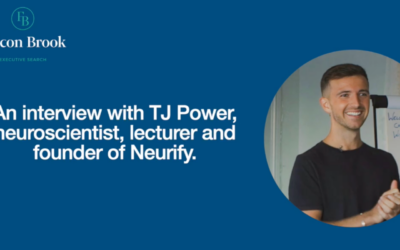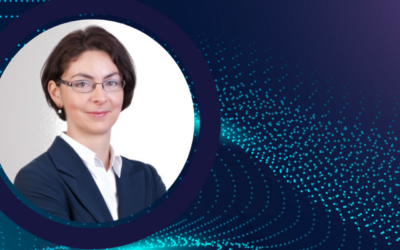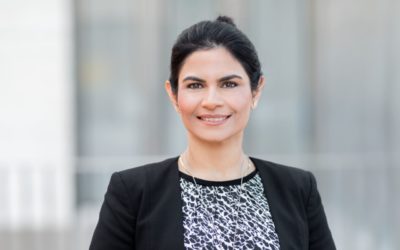Having successfully navigated Danske Commodities through the acquisition by Equinor and now the challenges posed as a result of Covid-19, CEO Helle Østergaard Kristiansen spoke to us about leadership, diversity and company culture in an emerging age of virtual working.
What are some of the business impacts that you’ve seen from the pandemic?
Our digitalisation strategy meant we were able to adapt quite quickly and migrate everything to virtual working. We launched a remote learning programme and developed guidelines for remote leadership. For employees in our new US and Australian operations, it was actually an opportunity to feel more connected.
Were there any surprises as a result of the rapid transition to home working?
We experienced that the need for coordination, feedback and social interaction increases when people work from home. We had to adapt fast and be much closer to employees. We formalised all communication and ensured leaders were reaching out to their teams to have the informal conversations which you would normally have at the coffee machine. We also launched company-wide virtual socials with music and quizzes.
Has Covid prompted any long-term changes to company operations?
Flexible working will be a competitive requirement to attract the best employees. We need to find a new balance around how we innovate when we are not all together in one office. How do you remain curious? We need a new dialogue on how to structure flexible working to support innovation, high curiosity and team interaction.
What are the biggest challenges in attracting and retaining diverse talent?
DC started with high diversity. When there were 10 employees, there were three nationalities. We are now 32 different nationalities from a wide range of academic backgrounds. As a business we don’t have a product, we don’t have a patent. 60 per cent of our earnings last year came from products we didn’t trade five years ago. Diversity means we continue to innovate in a culture where everyone is measured on performance. We don’t have KPIs for the colour of skin.
We had experts adapt our advertising as a high percentage of the words we used were “masculine” and we updated the visuals so that every job posting doesn’t feature a young male in a blue shirt. The website showcases our people to demonstrate that working in a trading company is not exclusive to a gender, ethnicity, age or nationality.
Our main recruitment challenge is actually our location. Aarhus is not a capital city and Denmark is a small country, even though there is an international university and schools and a large international community.
How is DC managing to navigate the ‘glass ceiling’ when women start a family?
We initiated four months’ paid parental leave so time off when a baby is born is no longer a gender issue. In fact, we recently promoted two female employees when they were pregnant. It was an easy choice, because they were the best candidates for the job. It sends a signal so women can see themselves as potential candidates at any time.
Energy trading is changing. A traditional trader is now a quant, a tech and data savvy individual who understands data modelling. We need to think differently to stay at the forefront.
It doesn’t make sense to look at only 50 per cent of the talent pool, especially as the energy sector has the lowest number of women employees compared to other industries. If we are going to be competitive, we need to look at 100 per cent of the talent pool.
How heavily do artificial intelligence and energy transition feature in the projects you are working on?
Digitalisation is the first of four development areas. We introduced algorithmic trading several years ago and moved from an execution robot to machine learning driven by teams where a trader, analyst, data expert and software developer are sitting shoulder to shoulder.
Our second priority is being a part of the value chain that can optimise the asset and make renewables a profitable business case in the green agenda. This motivates many of our employees and helps to attract the best and the brightest talent by creating programmes that match what employees expect from us as a company.
Lastly, we will continue to expand globally, though Covid-19 has challenged the timeline, as this brings tremendous opportunity for DC and our employees.
What advice would you give to younger talent, and especially to female employees?
Take on responsibility and make up your mind that there is never a good time. Responsibility is something you take, it’s not something you are given. If you are offered an opportunity, consider it carefully, because it may not come back when the timing is better. Take your job extremely seriously – but don’t take yourself too seriously. If you try to be perfect in every aspect, you’re likely to fail.
What were some of the culture shifts DC experienced in becoming part of a large global company?
We now have access to a global company with a global reach and experience. It was extremely important to agree our operating model with Equinor, so we operate as much as possible as an independent company. I have a huge respect for the way in which Equinor approaches the creation of an operating model when they buy a company like DC. The result is our recent annual people survey was an all-time high. High satisfaction a year after a 100 per cent acquisition is unusual. This is not something we can take for granted, especially as we become more global.
To give you a basic practical example, we have cake for everyone on the third floor when we have a big success. But it is a long way from the US to the third floor! Every word of our employee handbook, every policy, initiative, structure needs a global mindset if we are to succeed in the future. That is one of our top priorities at the moment – how we combine growth with continuing personal interaction.



